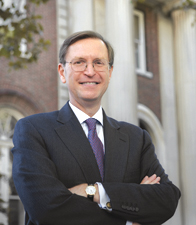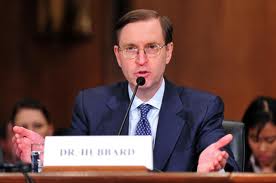Economic expert and political veteran Glenn Hubbard caused a small scandal when he voiced his opinion about whether Federal Reserve Chairman Ben Bernanke should continue in his position if Romney is elected president.

Hubbard, the dean of the Columbia Business School and President George W. Bush’s Council of Economic Advisors, said that Bernanke should “get every consideration” to continue in his job at least until his term concludes in 2014. Hubbard said that the Bush-appointee did an “excellent job” in the heels of the financial crisis.
Unfortunately these remarks contradict what Romney himself has been saying about Bernanke, who has said previously that he would like to replace the central bank chairman with someone whose opinions are closer to his own.
Romney commented on Hubbard’s remarks:
“I always listen to people who have counsel and advice, but my view has been that I would want to select … a new person to that chairman’s position, someone who shared my economic views.”
This disagreement underlines a fundamental problem for economists who venture into the political arena; should they voice their opinions which are based on their expert understanding of economic forces and circumstances; or should they just be ‘yes men’ to the leaders they are advising, at least in public.
Hubbard himself did not focus much energy on the debate, refusing to comment on his statement he made about Bernanke earlier this week.
“There is only one person [whose] view matters — Governor Romney,” Hubbard said.


